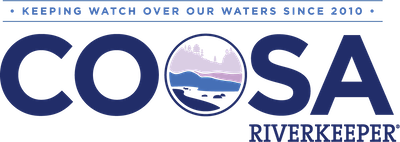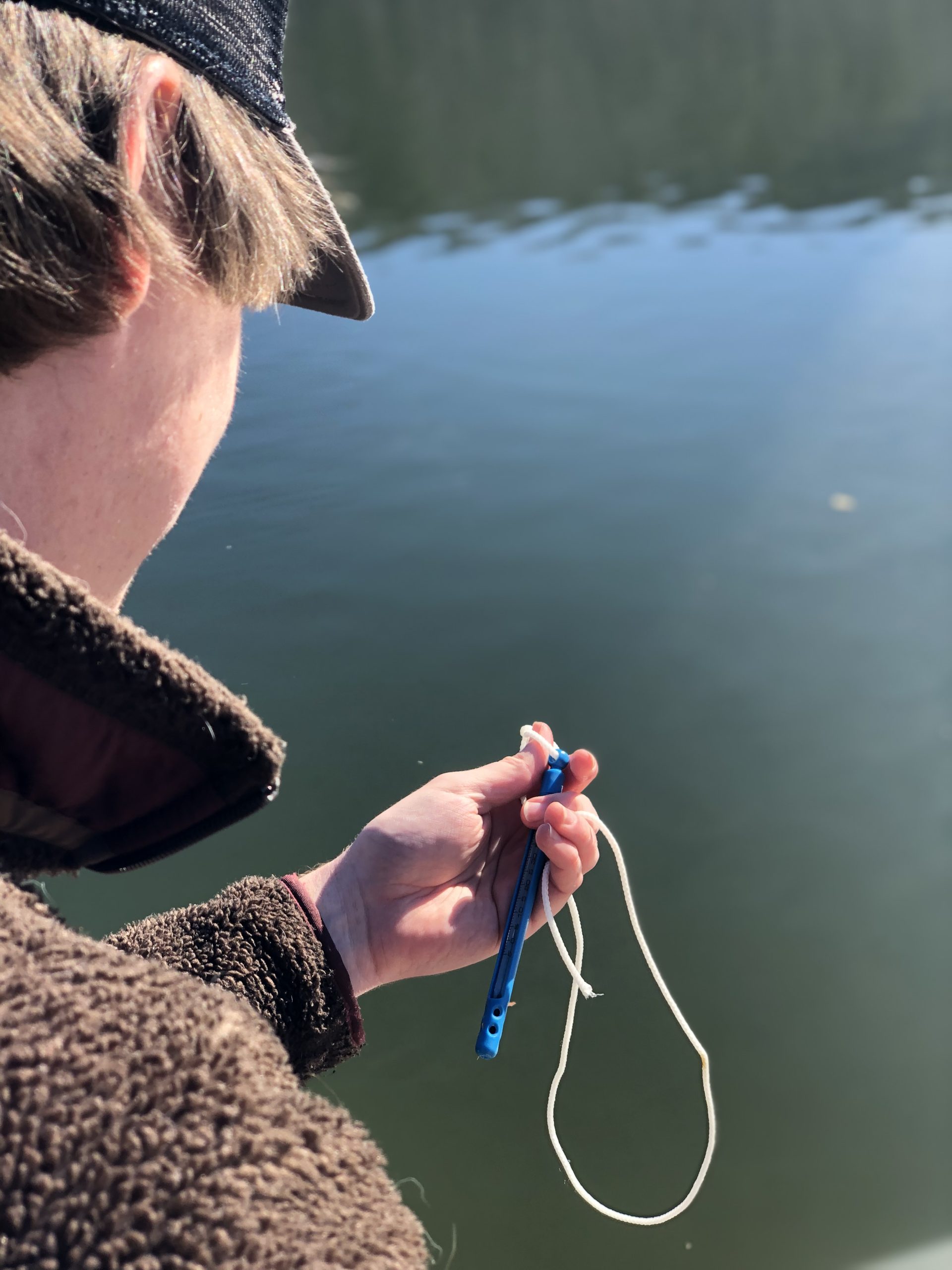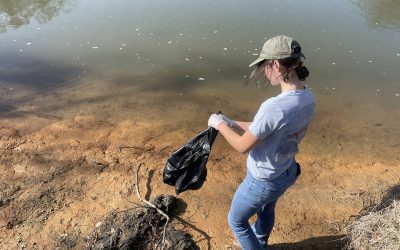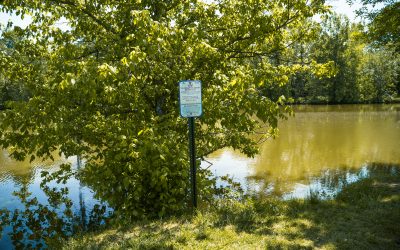As a river flows, small indicators of an unhealthy waterway pass us by without a clue. Forests replaced with real estate developments & farms over saturated with nutrients, become the hand that spoon feeds the river we fish, swim & drink from.
Suddenly our once coveted swimming & fishing holes are plagued with major algal blooms & murky waters.
A river you can’t swim, fish, or drink out of?
That sounds like a crime to us!

Introducing: CSI, The Citizen Science Initiative
Our Citizen Scientists are helping fuel each of our programs with data year-round, which supports our mission to protect, promote & restore the Coosa River. With 220 miles of river to patrol and a staff of three, we need folks like you to help us collect data from your dock or skinny water.
Data collected by citizen scientists (people like YOU) provide us with information that we can turn into insight, future restoration projects, program plans & ultimately improve the health of the Coosa. River conditions constantly change and we need your help to monitor them!

cit·i·zen sci·ence
noun
the collection and analysis of data relating to the natural world by members of the general public, typically as part of a collaborative project with professional scientists.
Data allows us to see the river CLEARER than ever
For just 5 minutes a week, our CSI Scientists contribute water quality data and observations that benefit the creeks, streams & lake. Consistent data collection is our greatest defense against the issues that threatens the river.
Here are some of the ways the data impacts our river…

Temperature
Our Citizen Scientists reel in fishermen by taking regular temperature readings!
- Fishermen can use this information to better understand the changing river conditions during the spawning season. Check out Temp Track (Coming in Feburary)!
- We can use the data to track average water temperatures through the years to determine how seasonality may affect our waterways.

Water Clarity
We’re in the business of keeping our waterways blue.
The Coosa receives a substantial amount of fertilizer run off from near by farms and animal operations. This causes an excess nutrients problem. It gives algae an optimal growing habitat. Algae sucks up all the available oxygen, resulting in fish kills and can produce harmful toxins, like Cyanobacteria, which can make for dangerous swimming conditions.

Field Notes
Pictures are worth a thousand words!
While our Citizen Scientists are out collecting data, they are also encouraged to submit observations. You will trained to note water levels, water color, and fishy situations. This information is vital in keeping up-to-date records on the water- like we said- rivers are constantly changing!
Want to add “Citizen Scientist” to your resume?
Follow these simple steps & you’ll be on your way to joining a network of data collectors!
- Ask yourself, “do I have access to a dock where I can take water temperature on the Coosa?”
- If yes, then you have everything you need! We will supply you with the rest! Get started by ordering the kit below, and within 2 weeks, you’ll receive your Welcome Packet + Thermometer + Secchi Disc.
“Choosing to save a river is more often an act of passion than of careful calculation. You make the choice because the river has touched your life in an intimate and irreversible way, because you are unwilling to accept its loss.”
-David Bolling, How to Save a River: Handbook for Citizen Action
This post was written by our Program Manager, Karli Riley




